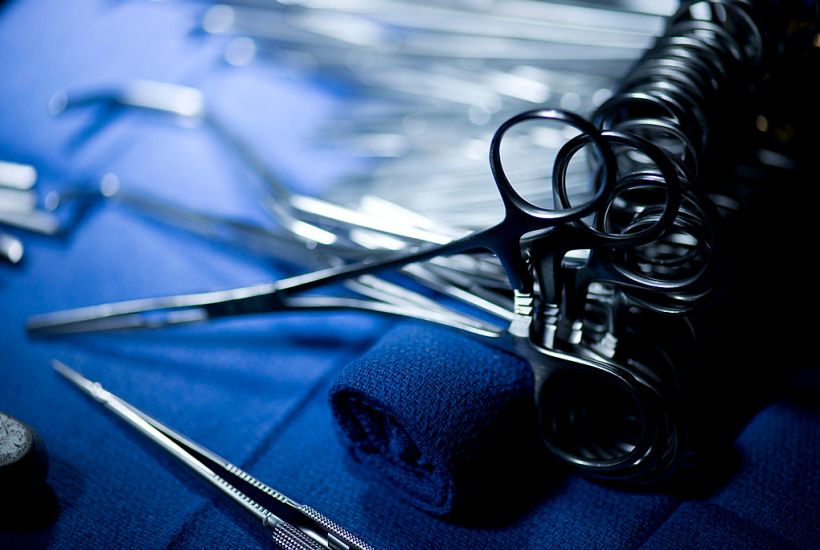Yesterday abortion provider Marie Stopes Australia announced that it “is searching for “brave philanthropists” to bankroll a $3 million fund for women struggling to afford abortion and contraception.”
That all sounds lovely, but are abortion and contraception really the help these struggling women need and should they really be seeking help from an organisation like Marie Stopes?
On the issue of abortion, the organisation’s CEO Michelle Thompson maintains, “it is about giving women choices…women who are in abusive relationships, a young woman with an unplanned pregnancy who wants to go on to complete her studies, or a mother who struggles to support her family.”
But what kind of “choice” is abortion for a woman who is scared of her abusive partner, or worried about being unable to complete her studies or support her family? Real choice entails a range of viable options, but the reality is that women in such desperate circumstances often view abortion as their only choice.
Moreover, abortion doesn’t actually solve any of these issues. Abortion doesn’t solve the issue of domestic violence, it doesn’t ensure better support frameworks for young expectant mothers who wish to continue with their studies, and it doesn’t provide appropriate assistance for mothers who are struggling to support their families. In fact, as we saw with the NRL abortion coercion scandals earlier this year, abortion itself can be the result of an abusive relationship and can cause ongoing psychological harm.
Instead of simply providing women with the so-called “choice” of abortion on demand, society must do far more to address the real issues they are facing and provide them with positive alternatives that are not going to expose them to further harm. This includes progressing real alternatives for women facing unplanned pregnancies and addressing issues of domestic violence, access and affordability of childcare, flexible workplace and study arrangements and access to pregnancy and counselling support.
In addition to raising funds for abortion and contraception, Marie Stopes is also planning to set up a fund “to support reproductive health research and education, particularly the uptake of LARCs” (Long Acting Reversible Contraceptives). The goal to increase the use of LARCs is especially concerning given their associated health risks for women. These include the significantly increased risk of depression associated with hormonal birth control, which was addressed in a major study published in the Journal of the American Medical Association: Psychiatry last year.
Aside from the fact that women deserve better than abortion and contraception as “solutions” to the hardships they are facing, any “brave philanthropists” should also be weary of an organisation that has an abysmal record when it comes to women’s health and safety.
Marie Stopes affiliates in Britain and Africa have recently been at the centre of multiple scandals for putting the safety of women and girls at risk in their abortion clinics as well as performing illegal abortions.
Inspections of Marie Stopes Clinics by the UK Care Quality Commission (CQC) recently found 373 botched abortions carried out in just two months. This follows a damning report by the CQC last year accusing the abortion provider of major failings, with more than 2,600 serious incidents reported in 2015. These included doctors going home with women still under sedation, nurses failing to obtain informed consent, and doctors ‘bulk signing’ consent forms. Labour MP Robert Flello commented: “Women are being railroaded through an industry which gets paid for as many abortions as it can perform.”
But as I wrote earlier this year, we don’t have to look overseas for evidence of Marie Stopes’ scant regard for women’s safety.
In 2010 Marie Stopes International (MSI) partnered with Dr Mark Schulberg at his abortion clinic in Croydon just a few months after news broke that 44 women had been infected with hepatitis C at the clinic under Dr Schulberg’s management. Dr Schulberg had also been found guilty of professional misconduct the previous year for failing to gain legal consent to perform a late-term abortion on an intellectually disabled woman. After partnering with MSI, the clinic continued to attract controversy after one woman died from a late-term abortion performed by Dr Schulberg and another was rushed to hospital in critical condition. In 2013 Dr Schulberg was struck off the medical register for inappropriately prescribing patients with addictive drugs for nearly ten years.
Instead of pouring millions of dollars into an organisation mired in scandal for its abortion practices, brave philanthropists concerned about women’s health should consider putting their money towards initiatives that promote real choice for women, address the real issues, and protect them from further, real harm.
Rachael Wong is a Barrister, an Adjunct Lecturer in the School of Law at the University of Notre Dame Australia, and the Director of Research, Policy and Advocacy at Women’s Forum Australia.
Got something to add? Join the discussion and comment below.
Got something to add? Join the discussion and comment below.
Get 10 issues for just $10
Subscribe to The Spectator Australia today for the next 10 magazine issues, plus full online access, for just $10.


























Comments
Don't miss out
Join the conversation with other Spectator Australia readers. Subscribe to leave a comment.
SUBSCRIBEAlready a subscriber? Log in